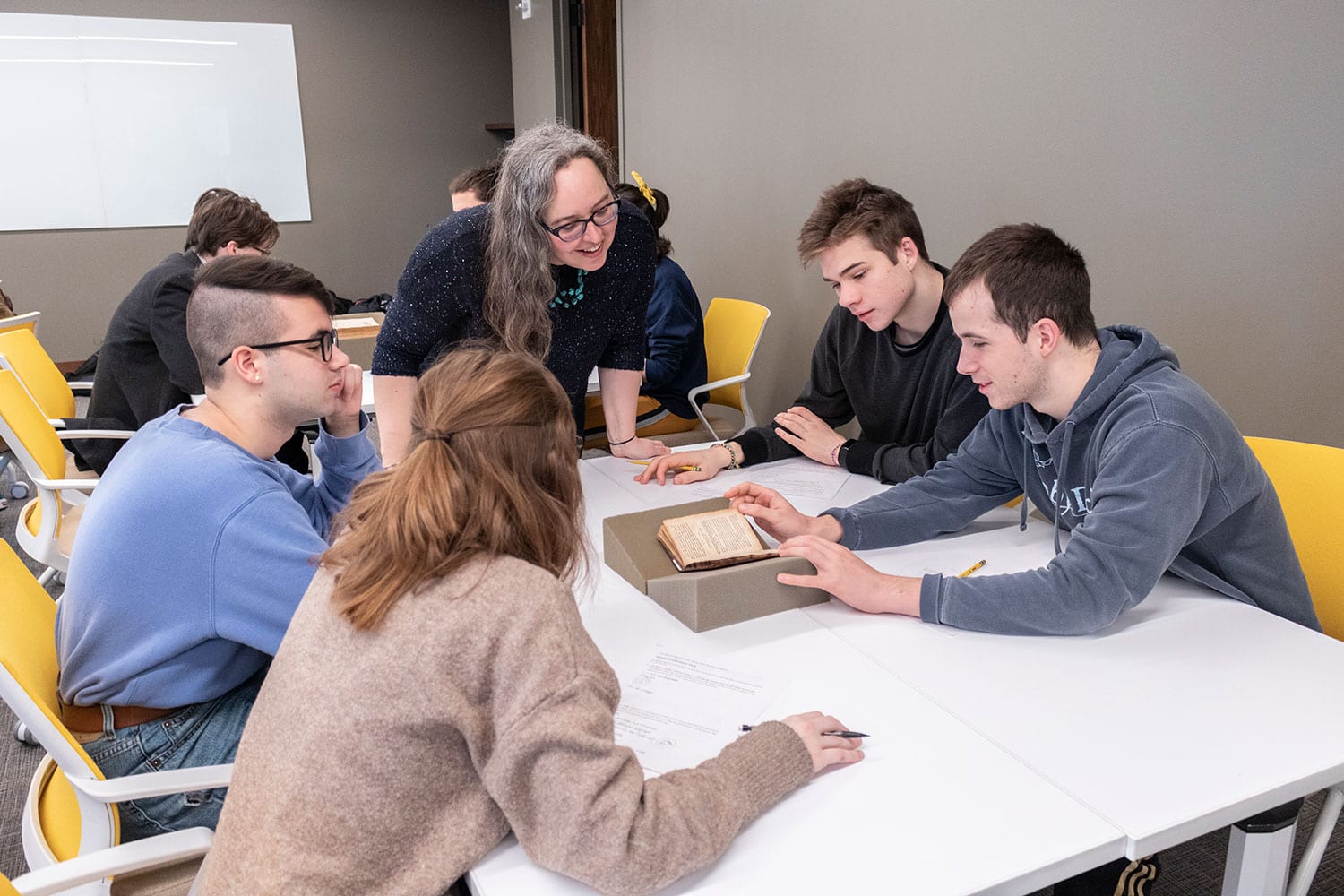Course name: “Indigenous Women: Gender, Ethnicity, and Feminism in Latin America”
Taught by: Visiting Assistant Professor of History Marlén Rosas
Says Rosas:
This class explores Indigenous women’s experiences in the history of Latin America. From the pre-colonial to modern periods, we learn how Indigenous women engaged in the politics of gender, ethnicity, class, and feminism. My goal is to dialogue with students about the dynamics of women’s social movements in the region, whose agendas often conflict with established gendered traditions. We look at how gender roles, for example, evolved as Indigenous communities encountered changes in markets, governance, and political ideologies internal and external to their localities. I hope that students come away understanding that Indigenous women’s histories are integral to understanding Latin American society; that their struggles are diverse, yet deeply connected in their pursuit of egalitarian traditions and collective freedom.
I created this course because I wanted to teach the breadth of Latin American history with a focus on the people and discourses that are not traditionally highlighted in a survey course. I also wanted to learn from students who are interested in studying gender issues and who may have more experience studying them in different contexts. They bring fascinating perspectives on the relevance of western feminism to intersectional struggles, for instance. I wanted this class to push students to think about these issues not only in the Latin American context, but with that new context, to reflect on how it might change what they already knew about other histories.
My course… prioritizes reflection on the process of exclusion in the production of history, at the same time that I teach about those excluded. That is, while we engage in debates over Indigenous women’s roles in history, we ask, why and how did power hierarchies make it so that these histories have only recently come to light? I offer my students primary sources from women who can teach us not only about themselves as women, but who also share important perspectives on historical events that affected entire societies.
Learn more about other courses offered by the Department of History.

